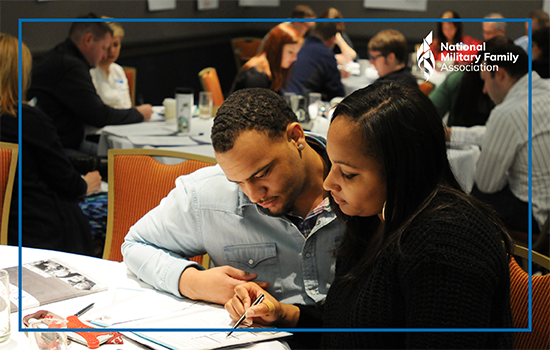Let’s Talk It Up! Mental Health and the Military Family

In early March, Department of Defense health leaders provided testimony at a Senate Appropriations Subcommittee on Defense hearing and discussed a serious issue facing service members and their families—mental health.
At NMFA, we know the toll military life can take on families, from numerous moves across the globe or pauses in careers and school sports teams. It is a unique life that can spawn an array of emotions.
That is why we want and encourage military families to “talk it up”! Talk about the challenges of military life with professionals, unplug from the day-to-day and spend time in the healing properties of nature (Operation Purple, anyone?), and utilize the resources available that best fit your family’s needs.
Why is this important? Because prioritizing mental health will secure every military family member’s voice and role of importance. Don’t know where to start? We have you covered!
Military Families Have Access to Professional Support
It is important to note that service members and their families can choose to seek help in various ways, with options that suit your family’s needs. Prefer to speak over the phone instead of in person? Maybe you prefer one-on-one versus a peer group setting? Whatever your preference, professional support is available.
In-Person Options:
- Military and Family Life Counseling (MFLC) program: This program provides free, confidential counseling services to military members and their families, including individual and family counseling, support groups, and workshops on and off the military installation. Counselors are trained to address various mental health concerns, including stress, anxiety, depression, and relationship issues.
- Unit Chaplin: Within your service member’s unit will be a chaplain who can provide support, resources, and guidance. Chaplains may not have clinical counseling training, but they do adhere to confidentiality and will know the primary resources available and how to get started.
- Installation Clinic or Hospital: Contact your primary care manager to discuss your mental health concerns in a safe and protected environment. You may learn about the services provided in those halls or receive a referral for professional outside care conducive to your situation.
Over the Phone or Chat Options:
- Military OneSource Live Chat: Available 24/7, this chat or phone option can be a preferred method with no limitations on location or time zone. Non-medical counseling will be available with guidance and resources.
- Military Crisis Line/Veterans Crisis Line: Another 24/7 option, this crisis line offers trained responders ready and willing to help. They also provide a text messaging option for those not ready to talk over the phone or have access to a computer to chat.
- Wounded Warrior Project Talk: Get access to an empathetic listener who will be committed to you or your family for a weekly 20-minute call.
Talk it Up and Why It Is Important
Now that you have the tools and numerous resources available to you and your family, the next step is to get comfortable and secure using it.
Mental health has historically, for some, been a taboo topic in the military since service members are expected to be tough and resilient—America’s heroes— and seeking help for mental health concerns could be perceived as altering that persona. But as Defense health leaders have recently noted, there is an upward shift toward greater acceptance and support for mental health and well-being, and we must stay on that trajectory.
Mission to Support Military Families
Wherever you or your family are on a healing journey, remember that you are not alone, and resources are available. By prioritizing mental health, each military family member will hopefully feel better supported and equipped for any mission ahead.
Do you feel supported as a military family? Share your story with us.
By: Angela Sablan Tenorio, Content Manager




